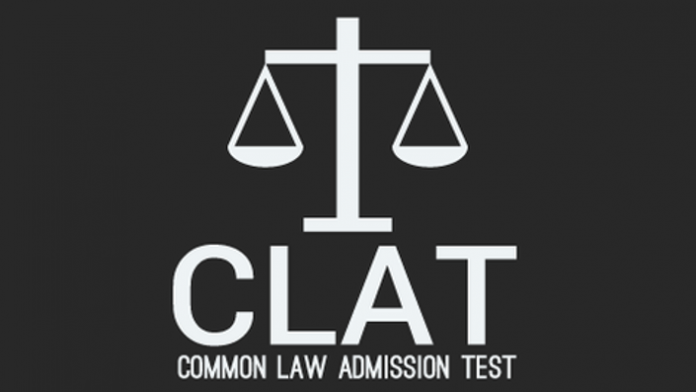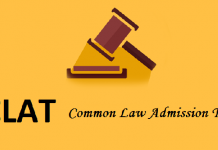This article is written by Surbhi Jindal, from Dr. B.R. Ambedkar National Law University, Sonipat, Haryana. The article discusses the strategies that will help you ace the CLAT PG exam and provide you with an edge over others.
Table of Contents
Introduction
What kind of preparation strategy will set you apart from others for the CLAT PG exam?
Many students are struggling with how to prepare for the CLAT PG exam. They want to crack it with flying colours but are clueless about where to start. We know what it takes to be successful, and here’s an article that will guide you on the right strategy to push you for the preparation and ace it.
We want to share certain points that would give you a headstart over other candidates for the CLAT PG exam so that you can have a better chance at securing your seat in one of India’s top law institutes. Here is a list of the points; take your time and read through them carefully!
Pattern of the CLAT PG exam
The old pattern of the CLAT PG exam contained only objective-type questions. It consisted of 120 multiple-choice questions (MCQs). For every correct answer, 1 mark was awarded, and for every wrong answer, 0.25 marks were deducted. This went on till 2021.
But from 2022, the new pattern for CLAT PG will be adopted. Now, the CLAT PG exam will contain both objective and subjective type questions. Under the new pattern, there will be 100 multiple choice questions and 2 subjective questions. For the objective-type questions, 1 mark will be awarded for every correct answer, and 0.25 marks will be deducted for every wrong answer. For the two subjective questions (descriptive essay type), each question will carry 25 marks each.
| Name of the exam | CLAT PG |
| Level of exam | National |
| Total questions | 102 |
| Pattern of exam | 100 objective questions 2 subjective questions |
| Total marks | 150 |
| Duration of exam | 2 hours |
| Marking scheme | 1 for every correct answer -0.25 for every wrong answer 0 for unattempted answer |
| Conducted by | CLAT Consortium |
Now, having understood the pattern, we need to know about the subjects required to be studied for the exam.
Objective and subjective pattern of exam
The new pattern of the CLAT PG exam has both objective and subjective questions. So, it’s important to understand what this new pattern seeks to achieve.
- Objective pattern: Under the objective pattern, the extracts from legal materials such as judgments, cases, statutes etc. will be provided. These questions seek to test the candidate’s analytical and reading skills.
- Subjective pattern: Under the subjective pattern, a candidate would have to write two essays not more than 800 words each. These questions seek to test the candidate’s factual and legal ability, critical analysis, and comprehensive ability.
Subjects to study for the CLAT PG exam
The syllabus for CLAT PG covers the major undergraduate subjects of the bachelor’s course. This exam tests your knowledge of what you have already studied in law school. Let us look at the topics that are covered in CLAT PG.
- Constitution Law
- Jurisprudence
- International Law
- Contract Law
- Tort Law
- Criminal Law
- Environmental Law
- Intellectual and Property Rights Law
- Labour and Industrial Law
- Property Law
- Family Law
- Administrative Law
- Company Law
- Tax Law
- Public International Law
These are the subjects that one needs to prepare thoroughly if they want to appear for the CLAT PG exam. It is observed that constitutional law, jurisprudence, and international law have been considered the subjects covering significant portions of the paper in which constitutional law dominates the paper. The questions from other subjects are found in fewer numbers as compared to these three subjects. So, an important question that arises is how to prepare for these subjects. In the next part of this article, we will deal with this question in detail.
Preparing for each subject in the CLAT PG exam
In the previous section, we discussed the subjects to prepare for the CLAT PG exam. We also learned that the constitutional law covers a significant portion of the exam, and hence, the right strategy is required to crack it. One needs to prepare for both the major and minor subjects to ace the exam.
But an important question is how can we prepare for each subject. So, keeping in mind both the subjective and objective pattern, let us divide the preparation for the exam into three parts.
Constitutional Law, Jurisprudence, and International Law
Since these three subjects cover a significant portion, a particular emphasis should be devoted to its preparation. First of all, the right book should be chosen for the preparation of these subjects. You should know what book to refer. Otherwise, you will remain in haste.
- For constitutional law, you can refer to M.P. Jain, JN Pandey, VN Shukla.
- For jurisprudence, N. V. Paranjape, VD Mahajan, and Mani Tripathi.
- For international law, you can refer to K. Jain.
One should always be prepared with the landmark and recent judgments as they play a significant role in acing exams.
Other areas of law
Under this category, subjects such as contract law, environmental law, tort law, etc., can be included. Similar to the significant areas of the exam, the preparation strategy remains the same. The only point of difference that occurs is that more time should be devoted to the significant area because of the highest weightage in the exams.
Legal contemporary issues
The third area which includes the contemporary legal issues also plays a vital role in acing the exam. As you know, the exam also has a subjective pattern; therefore, it is essential to be thorough with the legal issues around the world. This will help in writing relevant and comprehensive answers. Also, if you can link the applicable case laws and sections in your essay with the recent happenings, it would make your essay more comprehensive and help you score better.
Important topics to study for the CLAT PG exam
It may not be a feasible option to learn all the things given in a particular subject. However, there are certain important topics in a subject that are important to study. Whenever you try to crack any exam, the trick lies in ‘what to study and what not to study’.
Here is a list of all the important topics that one must definitely study if preparing for CLAT PG.
| Subject | Topic |
| Constitutional Law | Constitution of India, definition, features, framing of Indian Constitution, relationship between President and Council of Minister, doctrine of separation of power, executive power, nature of executive of India, constitutional rights, right against social discrimination, writ jurisdiction of HC and SC, freedom. Legislative power – procedure, privileged judicial power – organisation of judiciary, jurisdiction of SC of India,Federal Idea – Nature of Indian Polity, co-operative federalismFreedoms of Inter-state trade and commerceImpact of emergency on centre-state relations |
| Criminal Law | Elements of crime, actus reus and mens rea, group liability, abetment, criminal conspiracy, exceptions, attempt to commit offences, offences against public tranquility, offences against body – culpable homicide, murder, hurt, grievous hurt, wrongful confinement and wrongful restraint criminal force, assault, abduction, kidnapping, rape & unnatural offences. |
| Tort Law | Classification of torts, trespass, nuisance, defamation, liability for mis-statements, negligence |
| Contract Law | Formation of contract, validity, discharge and performance of contract, remedies and quasi contracts, Indian Contract Act, 1872, Specific Relief Act, 1963 |
| International Law | Definition, origin and development of international law, sources and subjects of international law, relationship between international and municipal law, state recognition, state succession, international river and canals, international law of the sea, air, space, aerial navigation, outer space exploration and use, nationality statelessness, state jurisdiction, basis of jurisdiction, jurisdiction immunity, extradition and asylum, diplomatic and consular relations, law of treaties, war and use of force in International law, law of contraband & blockade, concept of war, legal effects of outbreak of war and enemy character, settlement of international disputes, state responsibility, retorsion, reprisals, armed interventions with the role of United Nations |
| Intellectual Property Rights Law | Nature, meaning, definition and scope of IPR, Trademarks Act 1999, Patents Act 1970, Copyright Act 1957, IPR in International Perspective |
| Jurisprudence | Legal method, Indian legal system, basic theory of law, analytical positivism, Kelsen’s pure theory of law, Hart’s definition of law, Austin’s theory of law, definition of law by Holland and Salmond, different theoretical approaches to study law and jurisprudence, historical and anthropological approach, sociological approach, economic approach (Marx’s and Engel’s views about the law and state, realist approach, American and Scandinavian realism |
When to start preparing for the CLAT PG exam
Many people are confused about when to start preparing for CLAT PG. Some believe that the ideal time period to prepare for an exam is 4-5 months. This is because you have studied these subjects in your law school, and hence you have to revise the concepts. But this doesn’t seem right. You should never start preparing 4-5 months before the exam.
Remember studying for law school exams and competitive exams is different. Both of them require different approaches. Hence, one should devote a minimum of 6 months to the exam. Besides this, you should always try to start as early as possible. Starting early will help you build your concepts.
Preparation strategy for the CLAT PG
If you want to ace the exam, you need to remember that the right strategy is essential to cracking it. People who have cracked competitive exams have persistently mentioned that they followed proper techniques while preparing. So, what are the things one should do and avoid while preparing for CLAT PG? Here are some of the tips mentioned that will for sure help you in preparing for the exam.
Things that one should do to ace the exam
- Reading newspapers regularly will help a lot in cracking CLAT PG. The whole pattern of the exam tests a candidate on their comprehension abilities, and reading newspapers and various other legal texts such as judgments will help in two ways. First, it will increase your reading power and second, it will keep you aware of the latest happenings all around the world.
- As discussed earlier, one should start preparing as early as possible. You know that the CLAT PG exam tests on what you have already studied in your law school. Study any subject of your choice on which you haven’t done well in school.
- Therefore, you should keep revising the essential topics and learn various tricks to learn the sections of multiple laws. Starting early will help you build the concepts for an extended period.
- One should always learn the sections, acts, and various case laws thoroughly.
- Prepare a proper plan of study. One should analyze their weaknesses and strengths and work on them accordingly. Apart from an appropriate plan of study, one should also prepare a timetable. It will help you to devote sufficient time to each subject and help you ace the exam. Time strategy is the key to success.
- Analyze the previous year’s papers thoroughly. It will give you a basic idea of the level of the exam. It gives you a sense of the important areas on which you are likely to be questioned.
- Besides analyzing the last year’s papers, one should practice mocks as much as possible and then analyze them properly. Take mock tests to know your level of preparation.This will help in practicing time management and let you keep track of your progress and weaknesses.
Things that one should avoid while preparing for the CLAT PG
- One should never collect too many books and study material.
- Sometimes, people believe that they should only focus on their more vital areas and ignore weak areas as they may not be a right fit for them. But this is the wrong strategy. One should always focus on their weak areas and try to convert them into their vital areas.
- You should review your mocks but not your results. You should only check the questions and analyze the mistakes. But people generally look at their results and get worried. In this way, they demotivate themselves and affect their performance.
- The paper consists of negative marking for every wrong answer. Therefore, do not try to attempt those questions whose answer you are not aware of. You can make smart guesses but in such a way that it does not hamper your result.
Conclusion
Keeping up with the increasing number of questions is tough, and memorizing all the answers might prove to be tricky.
If you want to get good results, you need to work even harder for exams. Only then will you be able to knock the doors of success. The CLAT PG is a competitive exam that can have a major impact on your life. A good CLAT score can get you into the college of your dreams and a bad CLAT score can send you packing.
The best way to make sure to get success is to carefully plan for your future. If you are interested in knowing more about the CLAT-PG exams, do not forget to attend Lawsikho’s Bootcamp. You can register for the Bootcamp here.
References
Students of Lawsikho courses regularly produce writing assignments and work on practical exercises as a part of their coursework and develop themselves in real-life practical skills.
LawSikho has created a telegram group for exchanging legal knowledge, referrals, and various opportunities. You can click on this link and join:
https://t.me/joinchat/J_0YrBa4IBSHdpuTfQO_sA
Follow us on Instagram and subscribe to our YouTube channel for more amazing legal content.
 Serato DJ Crack 2025Serato DJ PRO Crack
Serato DJ Crack 2025Serato DJ PRO Crack











 Allow notifications
Allow notifications


